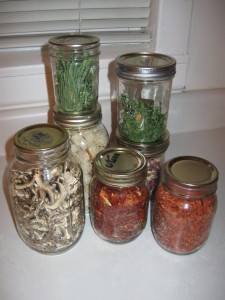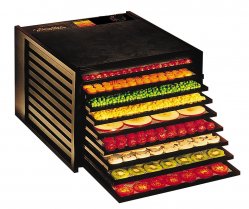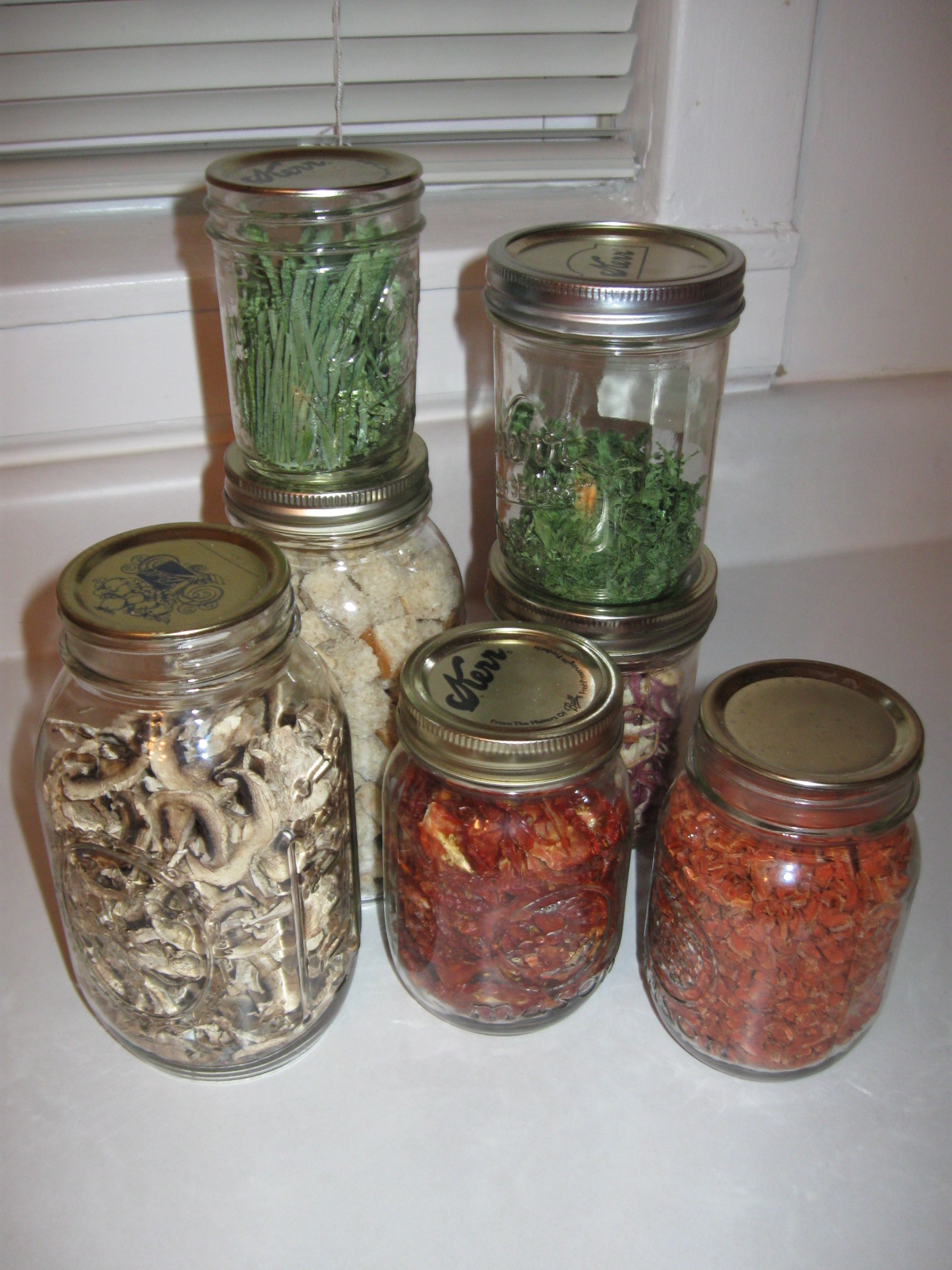
Since we left Ft. Worth, I’ve not had a garden. It has been something I’ve missed a great deal. However, almost 15 months since our departure, I’m still enjoying the fruits from that garden because of dehydration. I initially got interested in dehydration from a website called Dehydrate2Store.com. Tammy Gangloff, the owner of the site, has wonderful videos showing tips and techniques for getting started with dehydrating, her preferred equipment and supplies and ways to use the dehydrated foods.
Thank you, Ronco!
Like many folks who fell prey to late-night TV advertising (in my case, while on business trips back in the 1990’s), I had purchased a Ronco dehydrator many years before. I used it successfully to make beef jerky, dried apples and fruit leather. But, as with many things, my interest faded and I got rid of that old dehydrator during one of the purges I make when we prepare to make another move to a new place. So, dehydrating wasn’t a completely new concept to me.
Extreme Drying
However, Tammy’s tips gave it an entirely different focus. Instead of dehydrating foods to the stage that leaves them dry, but not crisp (as with many of the commercially available dried fruits), she advocates drying the foods to about 95% dry– very, very dry. Once the moisture is removed to that level, the foods will store for a very long time and allow you to enjoy the fruits of your garden for very long periods to come. By combining the idea of drying the foods more with the tips on storing them so that they are not exposed to oxygen through the use of mason jars and mylar bags with oxygen absorbers, the storage life of the foods are greatly extended. In fact, for many foods, that life can be up to 30 years with proper storage.
Maintaining Nutritional Value
Another attractive feature with dehydrating foods is how much nutrition is preserved through this method of food preservation. Since dehydrating of fruits and vegetables is done at a relatively low temperature (usually at about 120 degrees Fahrenheit), less loss of food quality is experienced when compared with canning or freezing foods.
One aspect of dehydration that is especially helpful is the fact that storage of dehydrated foods is very simple and requires no refrigeration or freezer space. These dried foods can be stored is a relatively small space at room temperature, for much longer than I really anticipate storing them (I really plan to use mine up before the 30 year mark!).
Sidenote: I became a bit less than thrilled with freezing things in the aftermath of Hurricane Katrina, when I lost my entire freezer full of raspberry and strawberry freezer jam! That was the point that I returned to the more traditional canning methods so that I wasn’t dependent on a steady power supply to keep my preserved foods.
The Cadillac of Food Dehydrators
After watching Tammy’s video demonstration of efficient dehydration, I decided I needed a very good dehydrator for our home. She recommended the Excalibur dehydrator, which I ordered directly from the manufacturer. As it happened, I bought a refurbished unit that had been used for trade shows or demonstrations and got a significant discount.

The 9-tray model I purchased does not have a timer, which people have asked about occasionally. I have never missed not having a timer, I must admit. Dehydrating is not an exact science — the food won’t overdry if you leave it an extra 15 minutes (or an hour — haha). The main features you want to be sure to have on any dehydrator is a thermostat and a fan that blows the air across the trays from the back of the unit. I like the Excalibur because of its high capacity and trust all the customer reports of its long life and durability.
Foods that Dehydrate Well
Among the foods that we have particularly liked to dehydrate are the following: Carrots, Celery, Onions, Peppers, Herbs, Tomatoes, Bread (for croutons and bread crumbs), Apples, Pears, Peaches, Zucchini, Cucumbers, Potatoes, Blueberries, Pineapple, Mushrooms and Garlic.
For a way to preserve more of the bounty from your garden, check out the possibilities with dehydrating… you won’t regret it.


Comments
We really enjoy our Excalibur, although we have not used it nearly as much as we would like to.
Ours will get a lot more use once we have a garden again… as I’m sure yours will once you have more space for gardening in your new place!
Comments are closed.